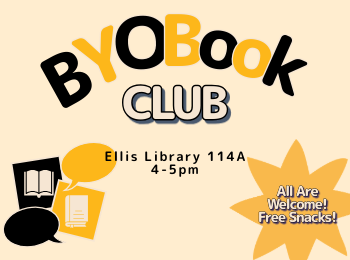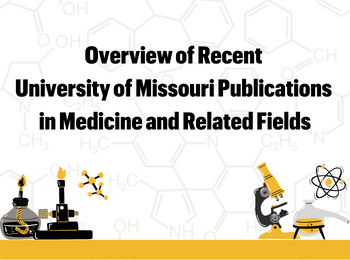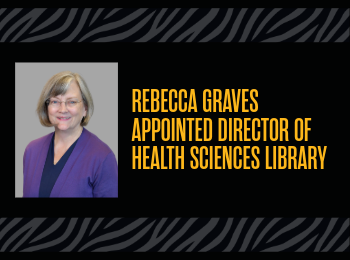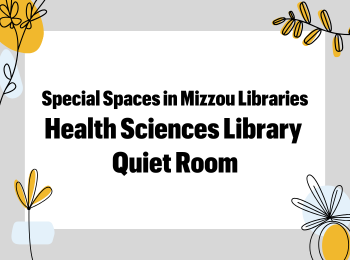Mizzou Libraries is pleased to announce that Rebecca Graves has been appointed director of the J. Otto Lottes Health Sciences Library. In this role, Rebecca will oversee a team of librarians and staff that provide support for education, patient care and research for the College of Health Sciences, Sinclair School of Nursing, the School of Medicine and MU Health Care.
Having spent many years at Mizzou, Rebecca has a deep understanding of the Mizzou campus culture and strong connections with faculty and staff—relationships that she looks forward to building upon in this new role. She previously served as the library’s education librarian, focusing on teaching students to become skilled researchers.
Most recently, Rebecca was awarded the Sinclair School of Nursing Honorary Alumni Award. The Honorary Alumni award is given to someone who shows outstanding achievement in nursing or support for the nursing profession. She was awarded this honor for her work as the education librarian, due to her profound impact on nursing students at the beginning of their nursing journey, as well as her collaborative efforts with nursing faculty on key initiatives.
Rebecca has a strong history of service to both Mizzou and the health sciences library community. She has been an active member of the Medical Library Association and the Midcontinental Chapter of the Medical Library Association since 1999. Here at Mizzou, she served on the Faculty Council (FC) from 2015 to 2021 and was the Chair of the FC Inclusion, Diversity and Equity committee from 2018 to 2021. Recently, she was a member of the Provost’s Task Force on Artificial Intelligence in the Learning Environment, which was awarded the FC Shared Governance Award.





